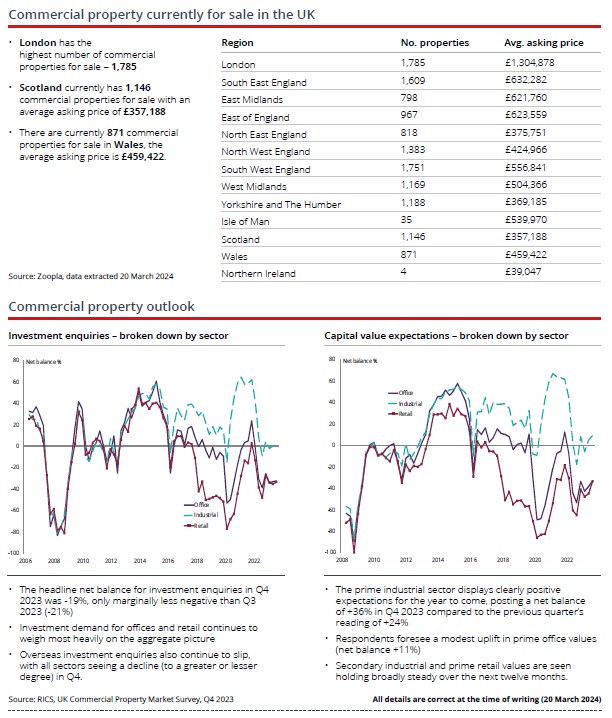Commercial property industry largely disappointed by the Spring Budget
The Chancellor’s Spring Budget has been mostly met with disappointment from the commercial property industry, with many experts left wanting a stronger financial commitment to the sector’s development.
Jeremy Hunt announced that Multiple Dwellings Relief (MDR) on Stamp Duty Land Tax in England and Northern Ireland will end on 1 June. Melanie Leech, Chief Executive of the British Property Federation, expressed concern for the build-to-rent sector in light of this, stating that “the government should be doing everything in its power to encourage more long-term investment into professionally managed rental homes.”
Head of Commercial Research at Knight Frank, Will Matthews, did find some aspects of the Budget “helpful”, in particular investment into growth sectors such as innovation, life sciences, and film studios. However, Matthews determined that “the sums and measures involved were not game-changing.”
Dr Walter Boettcher of Colliers is hopeful that the commercial property industry will feel long-term benefits of government investment, concluding that “ongoing reforms to pension and other savings platforms that encourages a larger and wider range of domestic investment sounds encouraging.”
Chinese developers are net sellers of UK commercial property
In the last three years, Chinese property developers have sold £1.4bn worth of UK real estate, data from MSCI has found.
Developers in China have been struggling since 2021, when the country’s property market started to crash after property giant, the Evergrande Group was declared to be in default. China’s biggest developers are therefore continuing to make money where they can by selling up in Britain, despite having spent £12.8bn on British commercial property between 2014 to 2020.
With Britain now ‘the top European investment location’ according to INREV, Chinese developers may be capitalising on buyers returning their attention here in hope of an investment opportunity. Despite this, it is still not a prime time to be selling real estate, according to Chris Gore, a Principal at Avison Young, who cautioned that, “Right now you wouldn’t be selling unless you really had to.”
Investment outlook for commercial property
The latest Investment Outlook from Carter Jonas predicts that 2024 will see more investment transactions than last year but that it will still register lower than the long-term averages.
The property consultants do not foresee a major market correction as a result of the UK General Election which will take place by January 2025 at the latest. However, from analysis of historic data, Carter Jonas envisage that market activity will slow in the months before and after the vote.
When it comes to the office sector, the report anticipates that those with correct green credentials and in prime locations ‘should benefit from rental growth in the short to medium term’. However, offices which do not have these ‘will likely continue to fall in value until a point is reached where it becomes economically viable to either refurbish them or change the use.’

All details are correct at the time of writing (20/03/24)
It is important to take professional advice before making any decision relating to your personal finances. Information within this document is based on our current understanding and can be subject to change without notice and the accuracy and completeness of the information cannot be guaranteed. It does not provide individual tailored investment advice and is for guidance only. Some rules may vary in different parts of the UK. We cannot assume legal liability for any errors or omissions it might contain. Levels and bases of, and reliefs from, taxation are those currently applying or proposed and are subject to change; their value depends on the individual circumstances of the investor. No part of this document may be reproduced in any manner without prior permission.